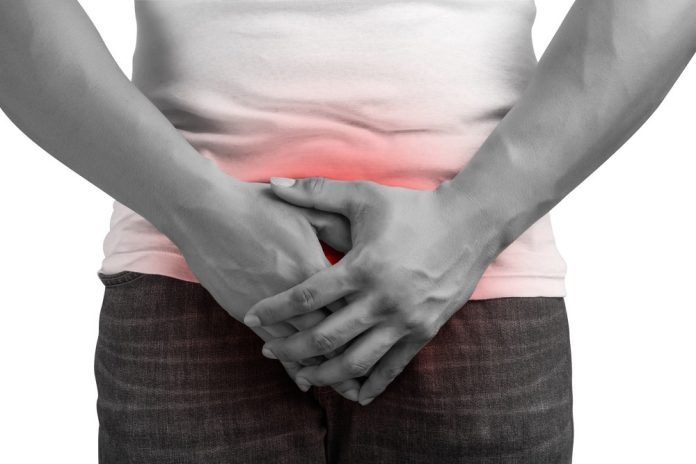Recently, 75-year-old King Charles was diagnosed with prostate enlargement and the issue has already aroused public interest.
After he entered the London Clinic in late January for a procedure to treat his enlarged prostate, a palace statement noted the surge in online searches around prostate care following his health announcement, and acknowledged the King’s pleasure at “having a positive impact on public health awareness.”
So, here is what you need to know about this important organ that contributes to a man’s ability to father a child, yet is a major health concern as men age. Indeed, experts warn that men aged 50 and above are more prone to having unfavorable issues with the prostate gland.
enlarged prostate is a common condition facing men
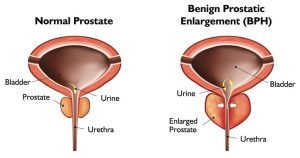
Enlarged prostate
Experts say the enlarged prostate for which King Charles was recently treated is a common condition facing men. Here’s everything you need to know.
What is a prostate? What problems can it cause?
The prostate is part of the male reproductive system. It is a small, walnut-sized gland located below the bladder and in front of the rectum. Its main function is to produce a fluid that, along with sperm cells from the testicles and fluids from other glands, makes up semen.
Yet while the prostate has an important role, Dr. Mitchell R. Humphreys, the chair of the department of urology at the Mayo Clinic, says, outside of reproduction, the gland “only causes challenges.”
problem arises when the prostate becomes so enlarged that it blocks the urine completely so you can’t pee, or you develop stones or an infection in the bladder
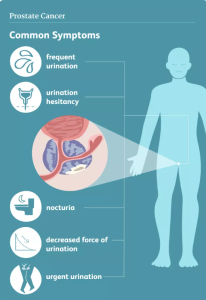 The two main difficulties are prostate cancer, which is the most common cancer for men, and prostate enlargement. By age 60, nearly half of all men will have the condition known as benign prostatic hyperplasia (BPH), and that number jumps to 90% by age 85, per Harvard Health Publishing.
The two main difficulties are prostate cancer, which is the most common cancer for men, and prostate enlargement. By age 60, nearly half of all men will have the condition known as benign prostatic hyperplasia (BPH), and that number jumps to 90% by age 85, per Harvard Health Publishing.
it’s important to recognize the symptoms of an enlarged prostate before it gets to be too late
What issues can an enlarged prostate cause?
Though the primary function of the prostate is related to reproduction, its position can impact the urinary system. As men age, the prostate continues to grow, which can potentially squeeze the urethra. This leads to symptoms such as:
- Difficulty starting or stopping urination
- A weak stream
- The need to urinate more frequently
- Getting up often in the middle of the night to use the bathroom
- “Dribbling” at the end of urinating
- Incomplete emptying of the bladder
- Burning or pain during urination.
- There was blood in either the pee or the sperm.
- Discomfort and stiffness in the buttocks, hips, or upper thighs may be present.
- Painful ejaculation
- Difficulty achieving an orgasm
Physicians say BPH becomes a problem when the prostate becomes so enlarged that it blocks the urine completely so you can’t pee, or you develop stones or an infection in the bladder.
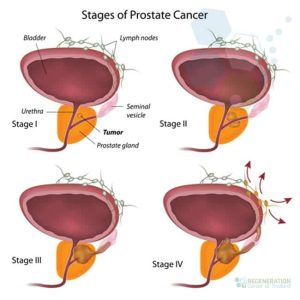 Not urinating properly is also bad news for your kidneys, which are responsible for filtering waste and excess fluids from the blood to create urine.
Not urinating properly is also bad news for your kidneys, which are responsible for filtering waste and excess fluids from the blood to create urine.
If urine doesn’t flow properly, the kidneys may struggle to perform this essential function, resulting in damage to the organ. The prostate may also bleed when it becomes enlarged, says the urologist at the Mayo Clinic, Dr. Humphreys.
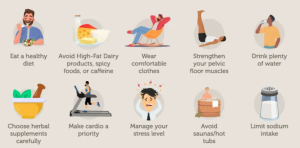
Humphreys notes that it’s important to recognize the symptoms of an enlarged prostate before it gets to be too late.
Men aged 50 and above are more prone to having unfavorable issues with the prostate gland
While the bladder will initially get stronger to overcome the obstruction caused by an enlarged prostate, at some point, he warns, it “is going to give up” and “won’t be able to squeeze the urine past the obstruction of the prostate.” That’s when medical intervention is needed to alleviate or remove that prostate obstruction.
How do you treat an enlarged prostate?
Humphreys says there are two major ways to address an enlarged prostate. The first is through medication, which he says is generally well tolerated but doesn’t always solve the problem. Oftentimes, surgical intervention is necessary.
By age 60, nearly half of all men will have the condition known as benign prostatic hyperplasia (BPH), and that number jumps to 90% by age 85
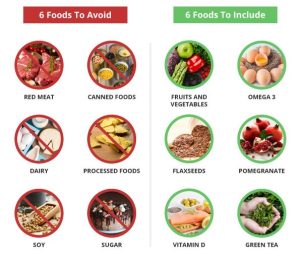
Diet for prostate health
Nutritionist, Dr. Femi Aboaba, says eating a diet that is rich in certain nutrients can help to reduce the risk of these issues.
A prostate-friendly diet should include:
- Foods that are high in antioxidants, such as fruits and vegetables, which help to protect the cells of the body.
- Fruits and vegetables are also high in fiber, which can help to reduce the risk of prostate cancer.
- Foods that are high in omega-3 fatty acids, such as fish, can help to reduce inflammation in the body, which can help to reduce the risk of prostate cancer.
- Foods that are high in zinc such as oysters, beef, pork, and poultry help to support prostate health.
- Foods that are high in lycopene, a powerful antioxidant that has been shown to reduce the risk of prostate cancer. Foods that are high in lycopene include tomatoes, watermelon, and pink grapefruit.

